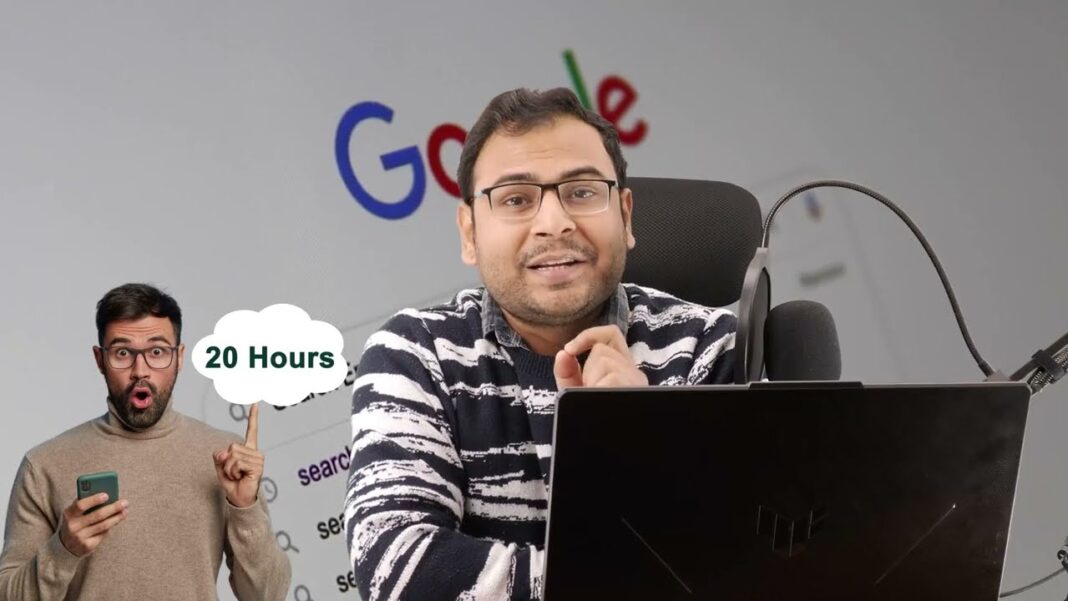In today’s digital age, having a solid online presence is crucial for the success of any business or event. With the majority of consumers turning to search engines to find products and services, having a strong Search Engine Optimization (SEO) strategy has become a necessity. And when it comes to search engines, there is no denying that Google reigns supreme.
Mastering the art of Google SEO marketing can be a game-changer for businesses and event organizers alike. It can help drive traffic, enhance brand visibility, and ultimately lead to increased conversions. In this article, we will delve into the fundamentals of Google SEO marketing, equipping you with the knowledge and strategies to propel your event to new heights.
Understanding Google SEO Basics
Before diving into the nitty-gritty of Google SEO, it is essential to understand the basics. In simple terms, Google SEO is the process of optimizing your website and its content to rank higher in search engine result pages (SERPs) for relevant keywords. The ultimate goal is to appear on the first page of Google’s search results, as research shows that 75% of users never scroll past the first page.
To achieve success with Google SEO, it is crucial to focus on two main areas: on-page optimization and off-page optimization. On-page optimization involves making changes to your website and its individual pages to improve their relevance and appeal to search engines. This includes factors such as keyword research, content optimization, and website structure. Off-page optimization, on the other hand, involves building high-quality backlinks from other websites to yours, signaling to Google that your content is trustworthy and authoritative.
Keyword Research for Event Marketing

Keyword research is the foundation of any successful SEO strategy, and it is especially crucial for event marketing. Your target audience needs to be able to find your event easily by searching for relevant keywords. Therefore, identifying the right keywords is essential.
Start by brainstorming a list of potential keywords that describe your event. Then, utilize keyword research tools like Google Keyword Planner, Ahrefs, and SEMrush to identify high-volume, low-competition keywords related to your event. These tools will also provide insights on search trends, allowing you to choose keywords that are currently trending and relevant to your target audience.
Once you have identified your target keywords, it is crucial to incorporate them strategically throughout your website and content. This brings us to the next pillar of Google SEO strategy – on-page optimization.
On-Page SEO Optimization

On-page optimization involves optimizing individual web pages to make them more appealing to search engines. Here are some key aspects to consider:
Website Structure
Having a well-structured website not only makes it more user-friendly but also helps search engine crawlers navigate and understand your content better. Ensure your website has a logical hierarchy with clear categories and subcategories. This will help users and search engines find information easily.
Title Tags and Meta Descriptions
Title tags and meta descriptions are HTML elements that provide a brief overview of your page’s content. They appear in search results, and optimizing them can significantly impact your click-through rate (CTR). Make sure your title tag accurately reflects the content on the page and includes your target keyword. Keep it under 60 characters, as Google typically cuts off longer titles.
Meta descriptions should be between 150-160 characters and provide a concise summary of what users can expect when they click on your page. Include your target keyword and make it enticing to encourage users to click through to your website.
URL Structure
Having clean and concise URLs is crucial for both users and search engines. It makes it easier for users to remember and share your page, and it also helps search engines understand the content on your page. Use hyphens (-) to separate words in your URL, and try to keep it under 100 characters.
Image Optimization
Images are an essential part of any website or event page. However, they can also slow down your website if not optimized correctly. Make sure to compress images without compromising their quality, use descriptive file names, and include alt text that describes the image. This will help search engines understand what the image is about and improve your website’s overall performance.
Content Creation and Marketing Strategies
Creating high-quality, informative, and engaging content is essential for both users and search engines. Google’s algorithm prioritizes relevant and useful content, making it crucial to create content that addresses the search intent behind your target keywords.
To ensure your content is SEO-friendly, here are some tips to keep in mind:
- Use your target keyword in the first 100 words of your content and sprinkle it throughout the text naturally.
- Utilize heading tags (H1, H2, H3) to break up your content into sections and make it easier to read.
- Incorporate multimedia such as images, videos, and infographics to make your content more visually appealing.
- Aim for longer-form content (at least 1000 words), as research shows that longer content tends to rank higher in search results.
- Promote your content through social media and other marketing channels to drive traffic and backlinks.
Utilizing Google My Business for Local Events
If you’re hosting a local event, optimizing your Google My Business (GMB) profile is crucial for Google SEO. GMB is a free tool that allows businesses to manage their online presence across Google, including Google Search and Maps.
To optimize your GMB profile for your event, make sure to:
- Claim and verify your business listing.
- Provide accurate and up-to-date information, including your event’s date, time, location, and contact details.
- Add high-quality images and videos to showcase your event.
- Encourage customers to leave reviews on your GMB profile, as positive reviews can improve your SEO and attract more attendees.
Building High-Quality Backlinks
Off-page optimization plays a significant role in Google SEO, with backlinks being one of the most crucial factors. Backlinks are links from other websites that direct users to your website. When reputable websites link to your content, it signals to Google that your content is trustworthy and authoritative, leading to a higher ranking.
To build high-quality backlinks, here are some strategies to consider:
- Collaborate with influencers or industry experts to create and promote content related to your event.
- Guest post on relevant websites and include a link back to your event page.
- Participate in online communities and forums related to your industry and share your event.
- Utilize social media to share your content and encourage others to link back to it.
- Monitor your backlink profile regularly and disavow any low-quality or spammy links.
Monitoring and Analyzing SEO Performance
As with any marketing strategy, it is essential to monitor and analyze your Google SEO performance regularly. This will help you identify what is working and what needs improvement. Google Analytics is a powerful tool that provides insights into your website’s traffic, including the number of visitors, bounce rate, and page views. It also allows you to track your event’s goals, such as ticket sales or email sign-ups.
Additionally, Google Search Console provides valuable data on your website’s performance in search results. It shows you which keywords your website is ranking for, the click-through rate, and the average position. This information can help you identify areas for improvement and make necessary adjustments to your SEO strategy.
Adapting to Google Algorithm Updates
Google’s algorithm is constantly evolving, making it crucial for businesses and event organizers to stay up-to-date with its updates. While it can be challenging to keep up, staying informed can help you adapt your SEO strategy to comply with Google’s guidelines and maintain a high ranking.
Some essential algorithm updates to keep in mind include:
- Mobile-first indexing: As of July 2019, Google indexes mobile websites first, meaning they prioritize mobile-friendly websites in search results.
- BERT update: In October 2019, Google launched the Bidirectional Encoder Representations from Transformers (BERT) update, which focuses on understanding the context behind search queries rather than just keywords.
- E-A-T: Expertise, Authority, and Trustworthiness (E-A-T) are crucial factors that Google considers when ranking websites. Make sure your content is created by experts and backed up by credible sources to boost your E-A-T.
Conclusion
In conclusion, mastering the art of Google SEO marketing can be a game-changer for boosting event visibility and driving conversions. By understanding the fundamentals of Google SEO, conducting thorough keyword research, optimizing your website and content, utilizing GMB, building high-quality backlinks, monitoring your performance, and adapting to algorithm updates, you can achieve unparalleled success with your event marketing efforts. So, make sure to incorporate these techniques into your overall marketing strategy and watch your event reach new heights of success.

